-
About
- About Listly
- Community & Support
- Howto
- Chrome Extension
- Bookmarklet
- WordPress Plugin
- Listly Premium
- Privacy
- Terms
- DMCA Copyright
- © 2010-2025 Boomy Labs
 Rob Crilly
Rob Crilly
Listly by Rob Crilly
There's lots being said about media coverage of the Boston attacks. Some of it is reactionary nonsense, suggesting that Twitter is killing journalism. Here's what I've been reading on the subject, and I'd thoroughly recommend Charlie Beckett's thoughtful analysis.

FALSE REPORT>>> RT@ thematthewkeys: Just in: Suspect 2 on the ground at gunpoint. - Mike Hayes (@michaelhayes) April 19, 2013 ...perhaps if I was in a real newsroom with access to my work email, instead of shut out a month ago, I wouldn't be working out of a bedroom - Matthew Keys (@TheMatthewKeys) April 19, 2013 "The important thing, I think, is to-as soon as you know something that you sent out is incorrect, you correct the record.
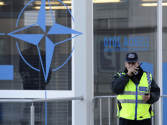
In the chaos of Hurricane Sandy, Twitter was riddled with false reports from people listening to the police scanner. Local news reporters have long understood that the scanner is a source of rumors, tips, and leads to follow up on-but not a reliable source of confirmed facts. Twitter didn't seem...
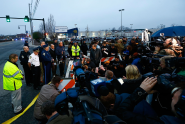
Reporters, camera crews and ordinary citizens with camera phones were squarely in the middle of the manhunt in Boston that gripped the nation on Friday, and the result was some of the most startling -- and at times unnerving -- news coverage in years.
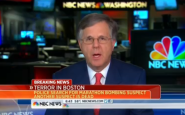
When CNN became the butt of jokes for its erroneous reporting Wednesday, NBC's Pete Williams' clear, careful, accurate reporting in a sea of media confusion had made him the most lauded television news reporter working on the Boston Marathon bombing story.
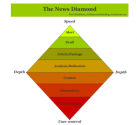
What does the Boston bombing tell us about how news is changing? Seven years ago when Twitter was just another start up, media academic Paul Bradshaw created a model for the 21st century newsroom which showed how 'news' is now produced in a multi-platform, multi-source process.
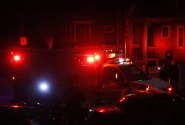
As always in America, the facts about what happened today near Boston were braided into what was shown and said about what had happened, and so the two became inseparable. There were two terrorists on the run in a Boston suburb; there were two, and then one, terrorists at large in the American imagination.
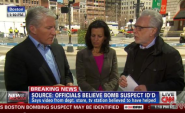
Inspired by the events of the past week, here's a handy guide for anyone looking to figure out what exactly is going during a breaking news event. When you first hear about a big story in progress, run to your television. Make sure it's securely turned off. Next, pull out...
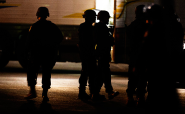
In the middle of the last night's nearly unbelievable turn of events, for a few hours, hundreds of thousands of people received a message about the identity of the alleged Boston Marathon bombers that was painfully false. Word got out that the Boston Police Department scanner had declared the names of the two suspects.
